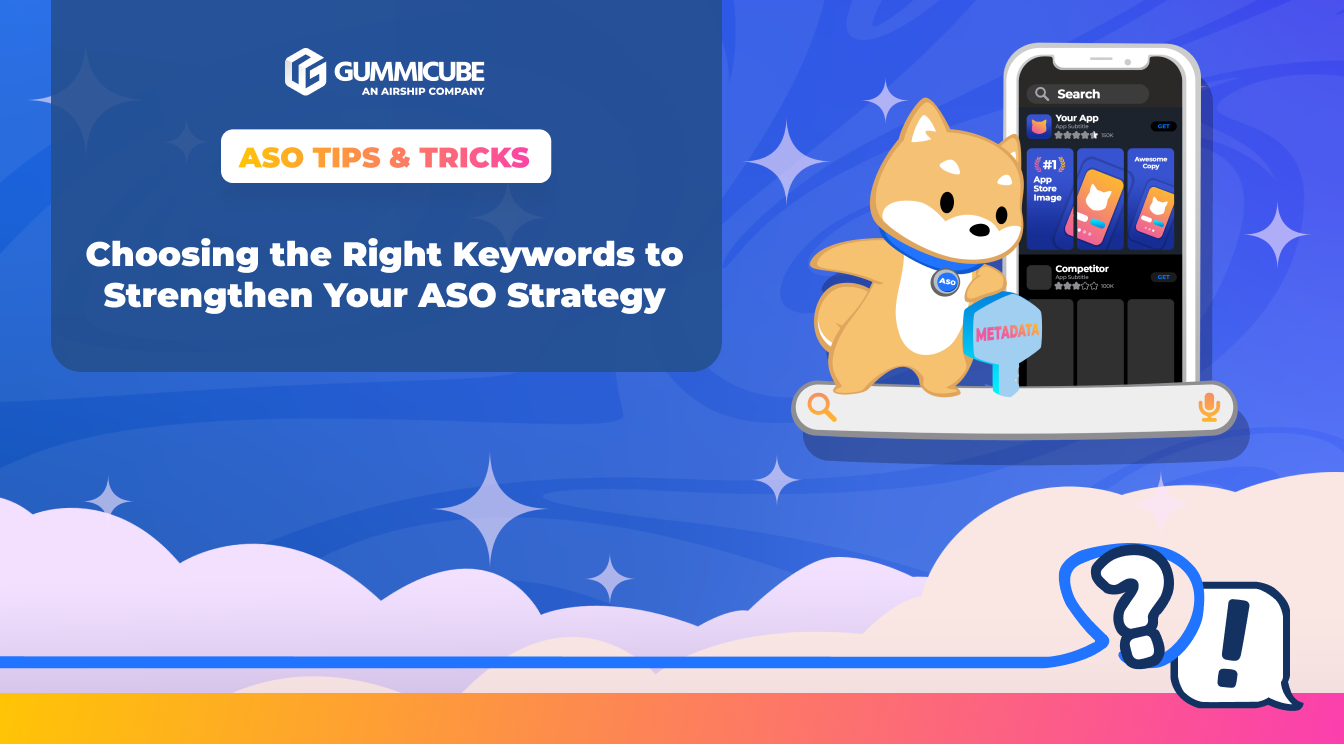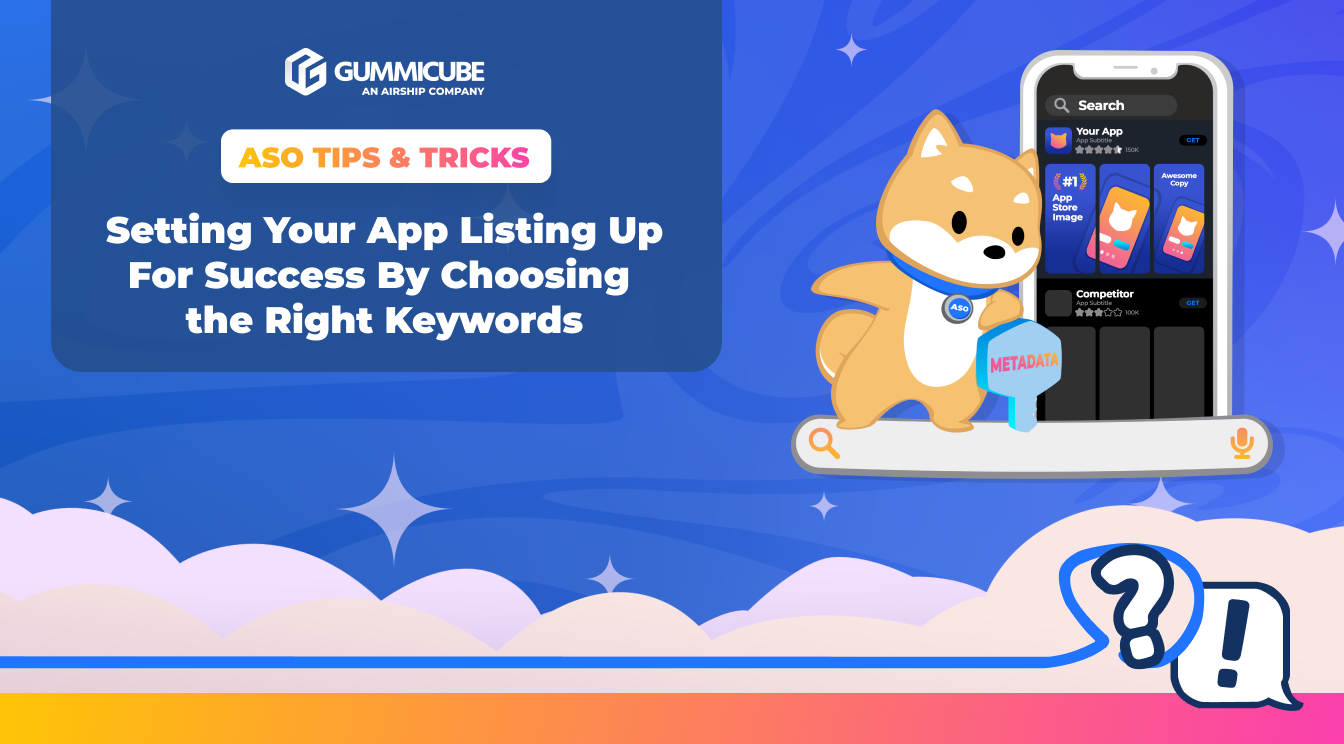
Boosting Your ASO Strategy With An App Store Video In Your Listing
Posted on February 27th, 2026
Ready to transform your app store presence? Discover how to capture more users by adding a dynamic app store video to your listing.

Selecting the right keywords is one of the most important components of App Store Optimization (ASO). App keywords can help determine whether your app appears in relevant search results or gets lost behind competitors who understand how to utilize metadata to their advantage. Every category within the App Store has unique search patterns and high-volume keywords that influence visibility. Developers who identify these terms and strategically integrate them into their metadata position their apps to be discovered by the right audience.
A successful keyword strategy goes beyond guesswork. It requires evaluation of market demand, competitor analysis, relevance, and overall search volume. ASO tools can simplify the research process and provide developers with clearer insights into which terms matter most for their app. By employing the right approach and prioritizing relevance over volume alone, developers can create optimized metadata that supports both visibility and user trust.
This week’s ASO Tips and Tricks breaks down the essential strategies for selecting powerful, meaningful keywords that can elevate your app listing.
Your app’s metadata determines how Apple interprets your listing and where it appears in search results. Metadata includes the app title, subtitle, and description. These fields act as signals for discoverability and relevance. Apple evaluates how your metadata aligns with what users are searching for. If your keywords are strategically chosen and accurately reflect the value of your product, your app is more likely to rank for those terms.
Incorporating your primary keyword into your app title can enhance app visibility and help potential users understand what your app offers. The subtitle allows you to reinforce supporting terms or include more broad, but relevant keywords. The description then informs users about the app’s features and purpose while reinforcing the overall semantic relevance of your content.
Each component of your metadata plays a specific role. Thoughtful keyword placement in these areas strengthens the connection between your content and the queries users enter. Apps that neglect keyword strategy often fall behind even if their product quality is strong. Proper keyword integration ensures your audience can actually find what you have created.
No two categories on the app stores behave the same. Each one has search terms, seasonal fluctuations, and user intent patterns that influence which keywords are most effective. For example, the Health and Fitness category will have high-volume terms related to workouts, nutrition, mindfulness, and self-tracking. Gaming apps may rely on genre-specific terms such as puzzle, idle, action, or strategy. Finance apps may prioritize budgeting, taxes, or credit tracking.
Understanding these patterns is important because volume alone does not dictate suitability. The term 'workout' may have a significantly higher volume than 'personalized training,' but if your app focuses on highly tailored fitness plans rather than general workouts, the broader keyword may not be the best fit. Developers should evaluate their core values and determine which popular category terms accurately align with their offering.
Category-specific research also reveals rising trends for apps. During tax season, search volume for finance-related terms spikes. As holidays approach, terms tied to shopping, gifting, travel, and event organization become more competitive. Developers who anticipate and adapt to these shifts using app seasonality can gain stronger visibility throughout the year. Each category moves differently, and keyword selection must reflect those unique rhythms.
Manual keyword research limits your ability to understand the broader landscape. ASO tools such as DATACUBE provide developers with accurate data that reflects real user behavior. These tools show keyword lists, keyword volume, competitor analytics, and more. With these insights, developers can make informed decisions about which terms deserve space in their metadata.
DATACUBE helps identify not only high-volume keywords but also long tail and alternative variations that may offer strong ranking potential with lower competition. Including the right keywords can help to attract your target audience and encourage meaningful traffic.
Using ASO tools also ensures a more strategic creative approach. When keywords inform your visual assets, such as screenshots and preview text, your listing becomes contextually stronger. Keyword-informed app creatives can help to reinforce the messages that Apple uses to evaluate the relevance of your app. This leads to improved conversions and clearer messaging for users who view your listing.
Developers should review their keyword insights regularly. Search behavior shifts throughout the year. What ranks well today may not hold the same position in two months. Regular evaluation helps your metadata remain aligned with the current landscape and ensures that your keyword strategy continually evolves.
App competitors provide valuable information about what is working within your category. Successful apps often rank highly because they integrate the right keywords in their metadata. Studying these listings reveals patterns that can guide your own strategy. Developers can examine competitor titles, subtitles, and descriptions to identify common terminology and recurring themes.
Competitor analysis also reveals gaps. If a phrase is commonly used across top-ranking apps but missing from your metadata, there may be a strategic opportunity to adopt it. On the other hand, competitors sometimes target keywords that are not relevant to your app. This can help you avoid misalignment while still benefiting from category insights.
Do not copy what competitors do without evaluating relevance. Your goal is to understand what contributes to their visibility and adapt those practices in a way that fits your app. Over time, this approach strengthens your position in the category and can create a more competitive app listing.
High-volume keywords attract many developers who assume that these terms will deliver the most traffic. While volume is important, relevance is essential. A keyword is only valuable if it accurately represents your app. If developers include high-volume terms that do not match their purpose or functionality, users can quickly lose trust.
Misaligned keywords can result in lower conversion rates and can potentially cause long-term damage to your listing. When users land on an app that is not what they expected, they often leave without downloading it. Apple may interpret this behavior as a negative signal and adjust your ranking accordingly. Keyword stuffing does not improve visibility. It harms the quality of your metadata and disrupts user experience.
Selecting relevant, high-volume keywords is the most sustainable strategy. These terms show Apple that your app aligns with what users want. When relevance is prioritized, your audience is more likely to convert, stay engaged, and leave positive feedback.
Keyword stuffing is one of the most common mistakes developers make. Adding as many terms as possible into your metadata does not improve rankings. It dilutes the clarity of your listing and confuses Apple’s algorithms. The platform rewards accuracy, quality, and cohesion. Listings that attempt to manipulate rankings by inserting irrelevant terms typically perform poorly.
Users can sense when an app tries to appear in searches where it does not belong. This breaks trust and damages brand credibility. A fitness app that attempts to rank for trending gaming terms may gain temporary visibility but will quickly lose traffic when users realize the mismatch.
The most effective keyword strategy strikes a balance between volume, relevance, and precision. Your metadata should clearly communicate what your app does rather than attempt to capture every possible search query. A strong keyword strategy builds trust. When users feel understood and see accurate positioning, they are more likely to download.
A competitive app listing uses keywords that reflect both user intent and category trends. High-volume, relevant keywords can create more opportunities for your app to appear in searches that matter. When users discover apps that meet their expectations, engagement improves and visibility increases.
This is particularly important for categories with dense competition. Developers who choose strong keywords and maintain consistent optimization practices often outperform apps with weaker or outdated metadata.
Positioning your app competitively requires ongoing evaluation. Volume levels change. User interest shifts. Category trends evolve. A keyword optimization strategy is never finished. It must be updated, tested, and improved throughout the year. Developers who commit to the ongoing process consistently see stronger results.
Choosing the right keywords is one of the most influential factors in App Store Optimization. Each category has unique search patterns and high-volume terms that shape visibility. By understanding these patterns and using effective research tools such as DATACUBE, developers can make informed decisions about which terms to integrate into their metadata. Competitor analysis provides additional context, while relevance helps your app listing attract the right users.
Avoid keyword stuffing, focus on clear communication, and position your app with meaningful terminology that aligns with user intent. When your keyword strategy is accurate and well researched, your app is more visible, more competitive, and more likely to attract engaged users.
If you are exploring ways to improve your app listing’s keyword strategy or want a deeper understanding of how ASO can support your app’s growth, our team is here to help. We collaborate with developers across various categories to refine metadata, enhance app visibility, and develop strategies that align with evolving trends on the app stores. Whenever you are ready, our ASO services are here to support your next steps in improving your app’s discoverability.

Ready to transform your app store presence? Discover how to capture more users by adding a dynamic app store video to your listing.

When you prioritize high-volume, high-relevance terms that accurately describe your product, you attract users who understand your value before they download.

For developers committed to disciplined ASO, promotional text is a high-visibility, high-impact messaging asset that directly influences conversion performance.